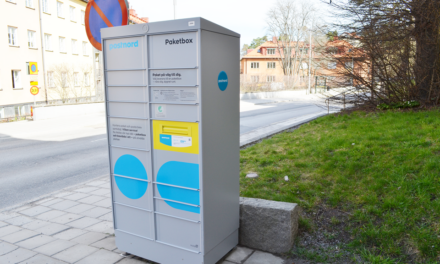
Should TNT stay in Germany or should it go?
Dutch mail and logistics company TNT NV has more to gain by staying in Germany despite competitive snags as buoyant growth prospects will make up for a shrinking business at home in the Netherlands.
Europe’s second-biggest mail and logistics company by market value, TNT is expected to lose its remaining monopoly in its lucrative domestic market this year, with competitors already eating into its market share and profitability.
It is seeking to reinforce its German operations but has threatened to pull out of the country due to what it sees as preferential treatment for Deutsche Post.
Earlier this month, a German court ruled in TNT’s favour in a case it brought against a minimum wage for postal workers, allowing it to continue paying its lower wage.
Europe’s largest economy introduced a minimum wage of up to 9.80 euros (USD 15.15) per hour for its roughly 220,000 postal workers in January.
The German government said it would appeal against the court ruling, and a verdict could take months, however.
That appeal is hanging over the company and the German postal sector like a sword of Damocles, Dutch daily De Telegraaf quoted Mario Frusch, the chief executive of TNT Post Germany, as saying on Thursday.
He said the company has put its investments in Germany on hold for the time being. TNT Chief Executive Peter Bakker told Reuters in December the company had frozen its investments due to the minimum wage issue.
But TNT needs to take a long-term view of the German mail market, one of the big three in Europe, as it has the potential to drive future growth and offset Dutch losses. Dutch mail and logistics company TNT NV has more to gain by staying in Germany despite competitive snags as buoyant growth prospects will make up for a shrinking business at home in the Netherlands.
Europe's second-biggest mail and logistics company by market value, TNT is expected to lose its remaining monopoly in its lucrative domestic market this year, with competitors already eating into its market share and profitability.
It is seeking to reinforce its German operations but has threatened to pull out of the country due to what it sees as preferential treatment for Deutsche Post.
Earlier this month, a German court ruled in TNT's favour in a case it brought against a minimum wage for postal workers, allowing it to continue paying its lower wage.
Europe's largest economy introduced a minimum wage of up to 9.80 euros (USD 15.15) per hour for its roughly 220,000 postal workers in January.
The German government said it would appeal against the court ruling, and a verdict could take months, however.
That appeal is hanging over the company and the German postal sector like a sword of Damocles, Dutch daily De Telegraaf quoted Mario Frusch, the chief executive of TNT Post Germany, as saying on Thursday.
He said the company has put its investments in Germany on hold for the time being. TNT Chief Executive Peter Bakker told Reuters in December the company had frozen its investments due to the minimum wage issue.
But TNT needs to take a long-term view of the German mail market, one of the big three in Europe, as it has the potential to drive future growth and offset Dutch losses.
"Germany is an important filler when it comes to their long-term mail network growth strategy in Europe," said analyst Christopher Combe at Jefferies International.
"Over the longer term, there is a much bigger opportunity for TNT to take market share from Deutsche Post on their own turf and get a positive operating margin and positive returns," he said.
A level playing field could see the loss-making German operation swing to a profit in two years, said ING analyst Axel Funhoff. "TNT's German operation is not huge but it is growing, with annual sales growth of about 20 percent," he said.
A European Union push for mail market liberalisation means countries will eventually be forced to scrap barriers erected to protect national incumbents, Combe said.
TNT's German unit had an operating loss of 31 million euros in 2007 and 233 million euros in sales, accounting for 2 percent of group revenues. Analysts said the loss could rise to 40-50 million euros this year.
GERMAN EXIT NOT AN OPTION
TNT's shares gained as much as 2 percent in intraday trading on March 10 after the court ruling on the minimum wage.
"Pulling out of Germany is not really an alternative," said fund manager Herman Klein at ING Investment Management.
"TNT will keep some wage-cost advantage after the court ruling. This should allow them to achieve a decent profit level in their German operations over time. Especially as the risk of new entrants is low," he said.
The introduction a minimum wage scuppered a rival and now insolvent mail service business, PIN, owned by publisher Axel Springer.
"Despite political pressure in Germany, it is more possible to operate there than in France where there is more political pressure," said Corne van Zeijl, SNS Asset Management fund manager, which holds TNT shares.
"The German government is clearly favouring Deutsche Post but I do think they want to have some competition," he said.
Uncertainty over TNT's German business, adding to worries over eroding market share at home, slowing economic growth and rising oil prices, have pushed TNT shares down 20 percent since the start of the year.
This compares with an 18 percent drop in the DJ Stoxx industrial goods and services.
The company trades at 9.5 times forecast 2008 earnings, a discount to Deutsche Post's 11.3 times and multiples of 16 times and 13 times respectively for U.S. rivals UPS and FedEx, according to Reuters data.
"They are as cheap as Deutsche Post. We have not seen that in a long time as normally they are better valued than Deutsche Post," said Petercam analyst Thijs Berkelder.
TNT has often been seen as a takeover target for its bigger peers such as UPS but analysts said the current stock market turmoil has doused the speculation somewhat.
The company does have other options if it decides to pull out from Germany.
"TNT has lots of other growth drivers. They are growing faster in mail in the UK, Belgium and Italy. They are also banking on strong growth in Brazil, Russia and China," Berkelder said.













